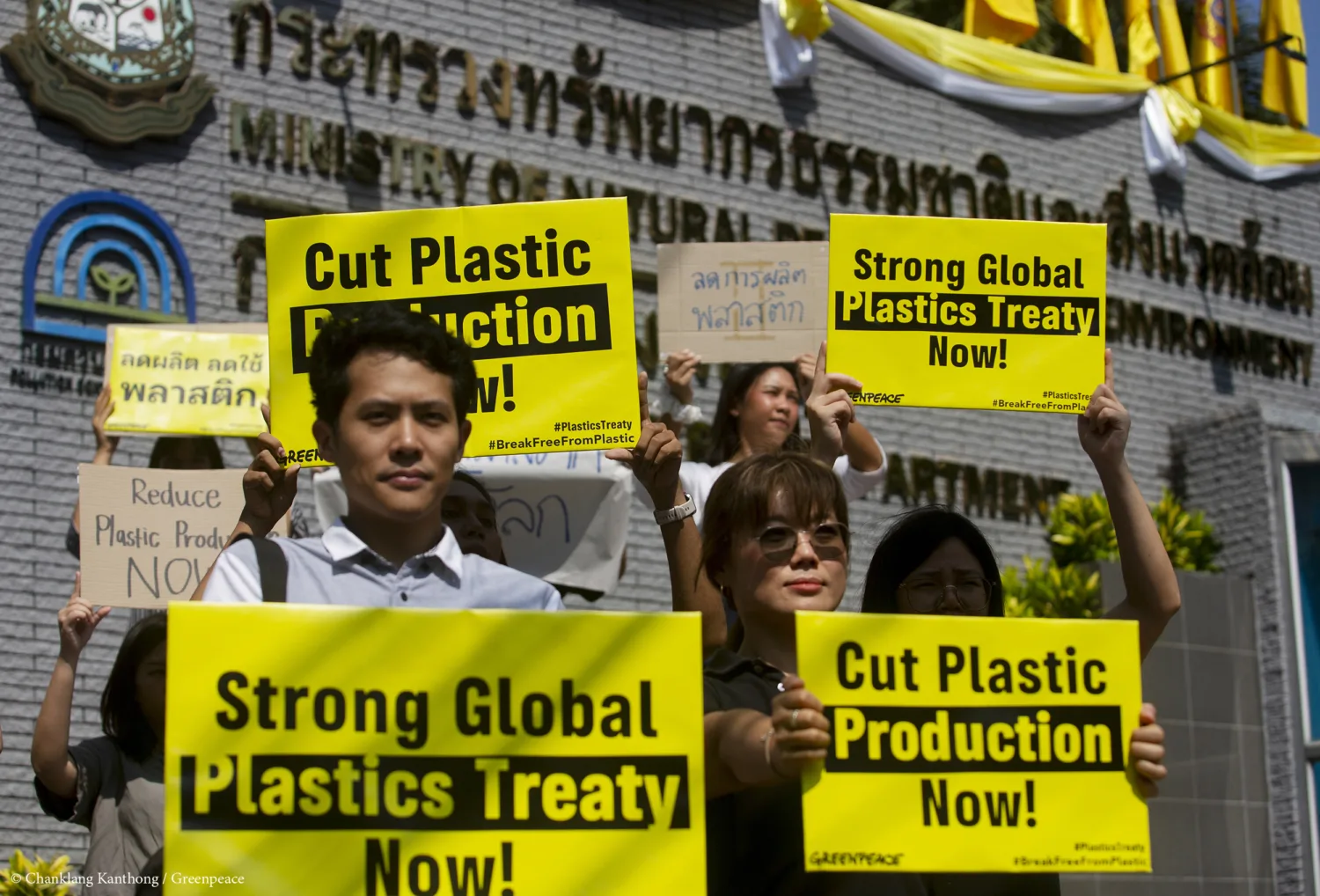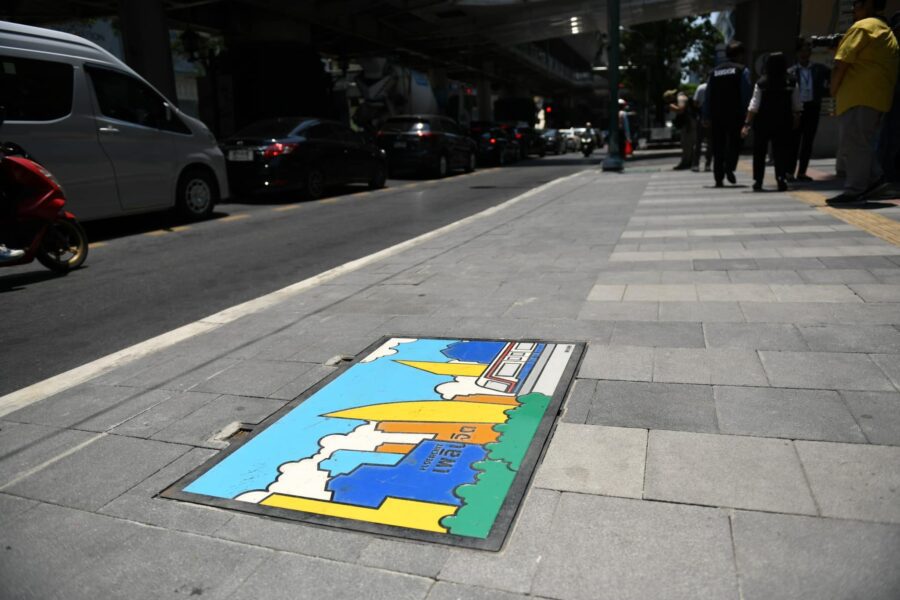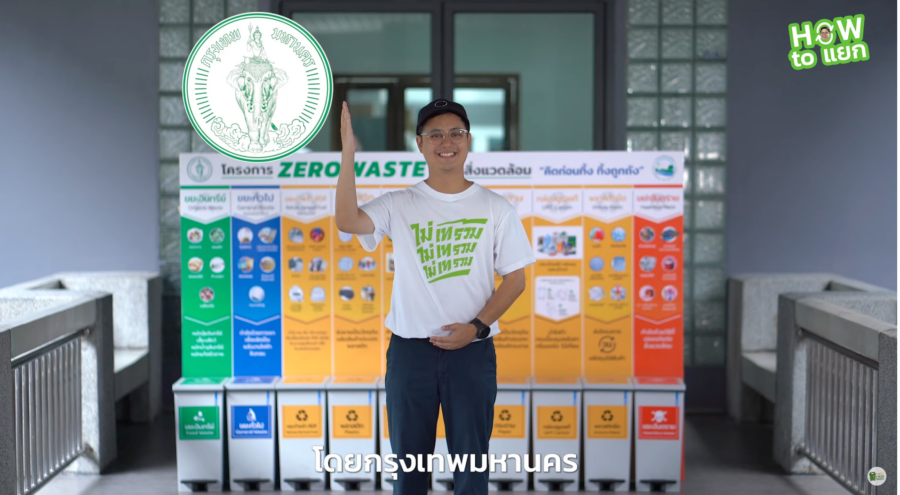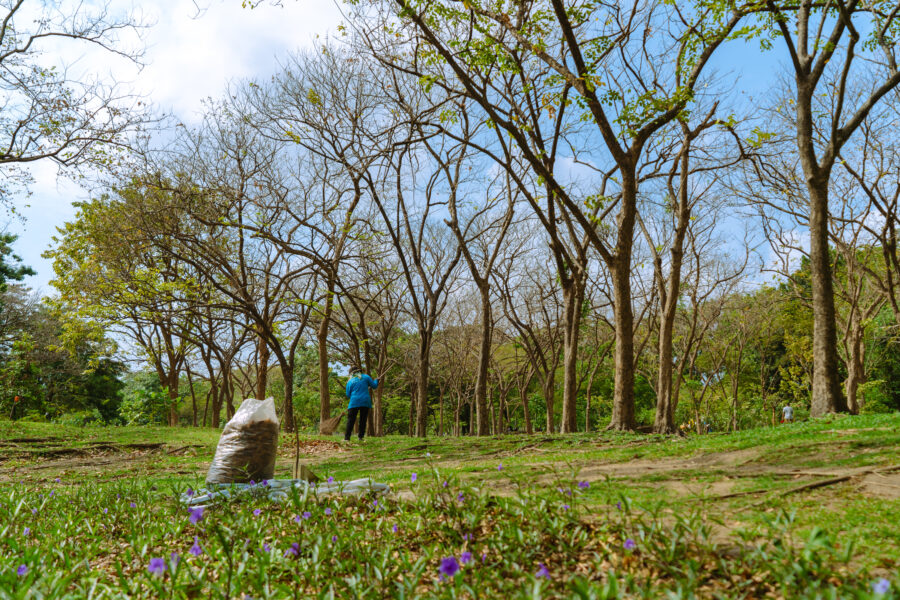Bangkok, Thailand – On November 13, 2024, at 10:00 a.m. at the Ministry of Natural Resources and Environment, the Environmental Justice Foundation (EJF), the Ecological Alert and Recovery Foundation (EARTH), Greenpeace Thailand, and the Trash Hero Thailand Association, representing over 160 civil society organizations, submitted a statement to the Minister of Natural Resources and Environment, urging the Thai government to take a strong stance on the “Global Plastics Treaty” ahead of the final negotiations from November 24 to December 1 in Busan, Republic of Korea. The statement emphasized the government’s support for measures to control plastic production to sustainable levels, control hazardous chemicals, and end plastic pollution throughout its lifecycle.
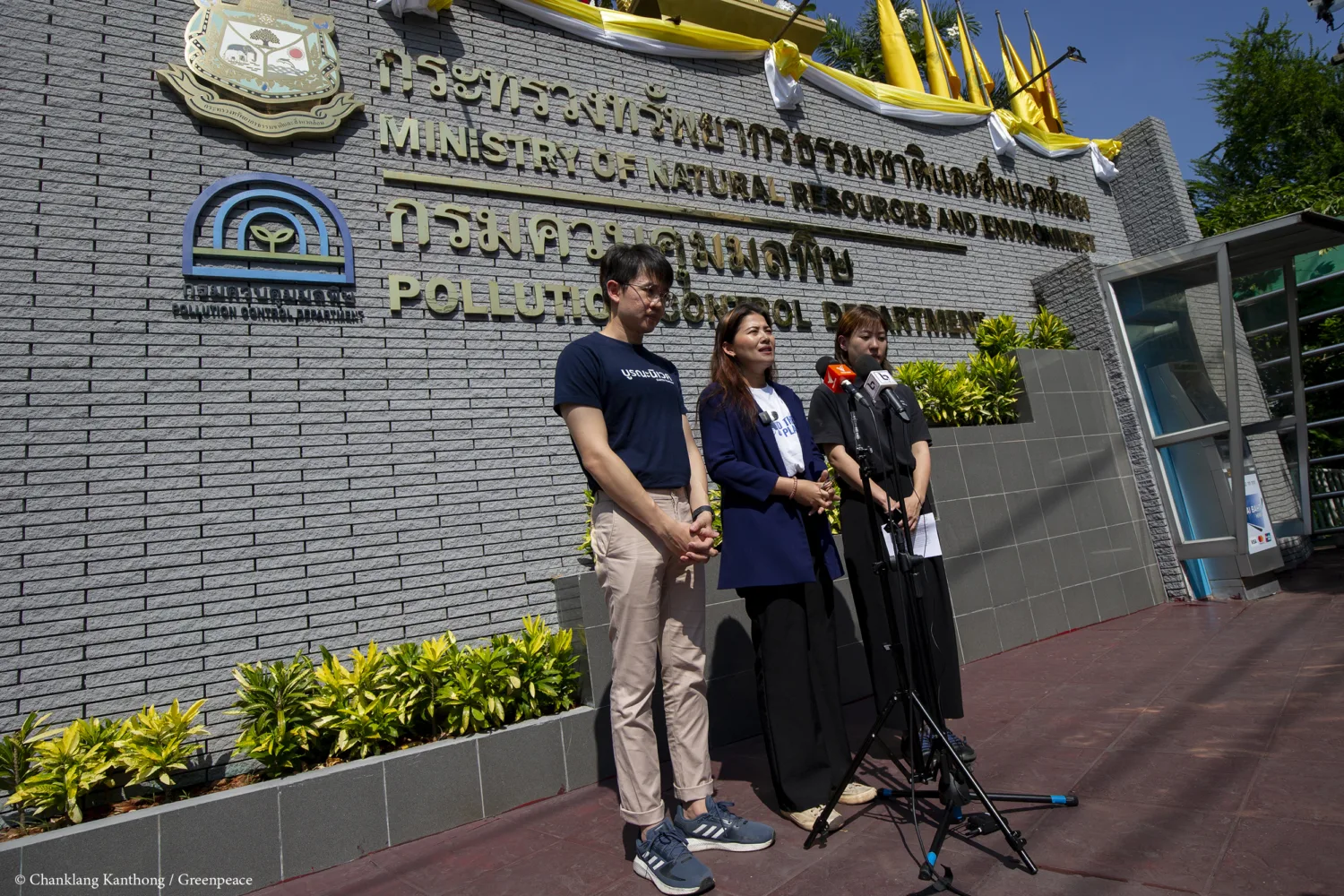
Following the 5th United Nations Environment Assembly (UNEA 5) meeting in March 2022 in Nairobi, Kenya, 175 member countries agreed to develop legally binding measures to address plastic pollution, including in the marine environment, with a target of completion by 2024.
Legally binding measures or “Global Plastics Treaty” This treaty focuses on a comprehensive and life-cycle approach to plastics management, from controlling plastic production volumes, regulating single-use plastics, chemicals and additives of concern, expanding producer responsibility, to a just transition and environmental recovery mechanisms. The main goal is to end plastic pollution across borders. Four rounds of drafting the treaty have been held, and the fifth and final round of negotiations will begin on November 25 and run until December 1, 2024.
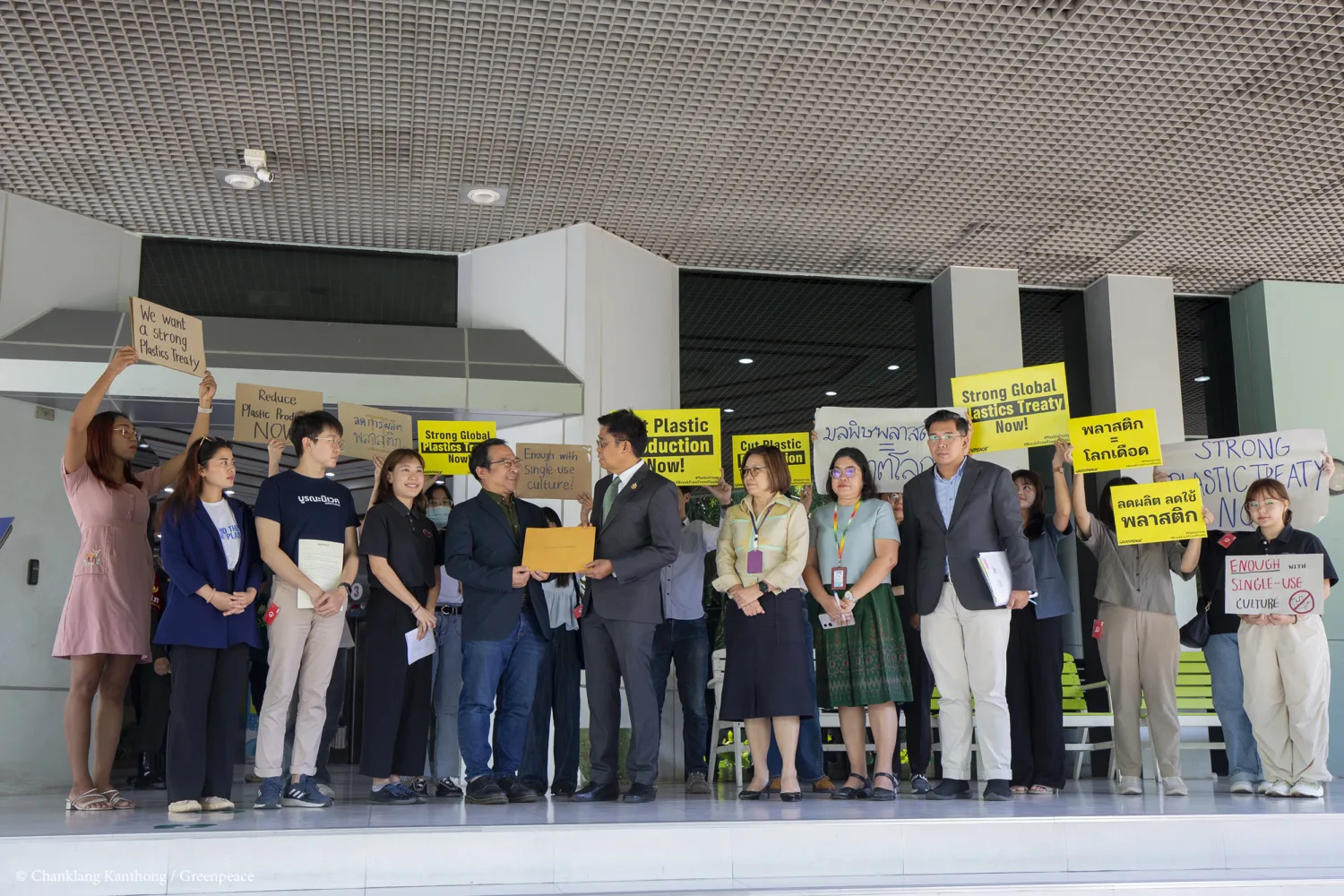
The upcoming negotiations represent the global community's final chance to reach a treaty that will end plastic pollution and set sustainable levels of plastic production. The civil society statement calls on the Thai government to take a strong stance in the negotiations, with a list of 10 demands:
- Reduce plastic production to levels that are sustainable for consumption and the environment. Eliminate the production and use of problematic, difficult to manage, and avoidable plastics.
- It is required that the use of hazardous chemicals be phased out throughout the plastics' life cycle, and that alternative chemicals that are safe and do not impact the environment and health are considered.
- Establish infrastructure for reducing plastic use Reuse, refill Standardized, safe and accessible repairs for all.
- It requires the development of laws and the expansion of the responsibilities of producers and stakeholders to eliminate the use of unnecessary plastics, expand reuse, refill and repair systems, and design products that can be recycled in a way that takes into account the environment and human health within the country, covering the life cycle of plastics and the cost of environmental damage caused.
- Requires plastic manufacturers to publicly report information on the chemicals in their raw materials and products, including information on the release and movement of chemicals and pollutants into the environment from plastic-related industries.
- Establish international standards for the management of used plastics, prioritizing plastic reduction at the source, banning the burning of plastic waste, setting strict waste management standards, including recycling and energy production, and protecting the environment and human rights.
- We do not support wrong solutions, including dirty recycling, expanding waste-to-energy plants, and alternative plastics that cause other problems.
- We discourage the movement of used plastics across borders and the export of polluting technologies, which shifts the burden of pollution to developing countries.
- It aims to restore the environment, including providing relief and improving the quality of life for those affected by plastic pollution.
- Enable a just transition by involving stakeholders from all sectors, including communities affected by health, economic and social impacts, and plastic workers and workers, to design a future free of plastic pollution, while respecting human rights and human dignity.
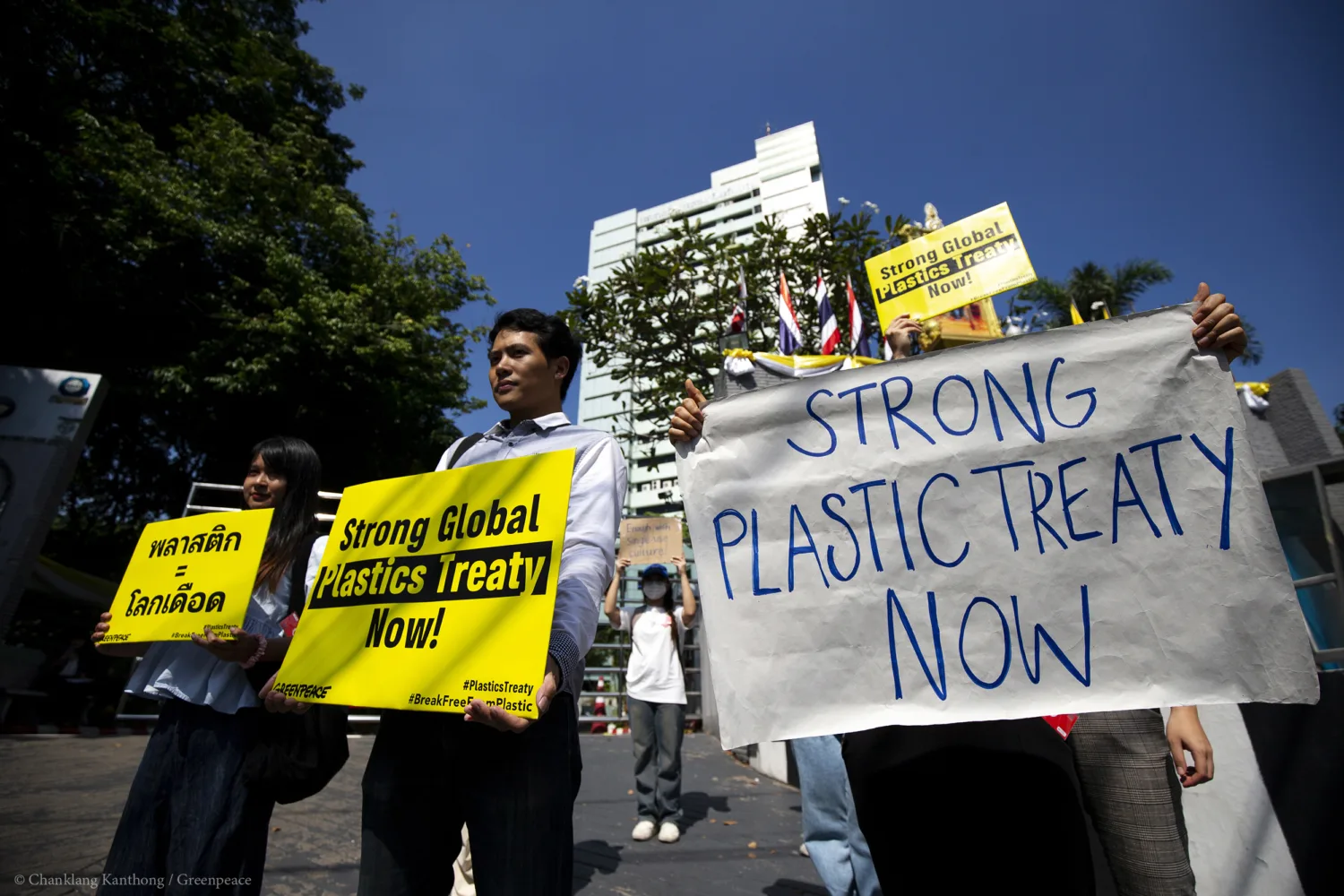
“There is no denying that the current level of plastic production is unsustainable,” said Salisa Traipipisiriwat, senior campaigner and Southeast Asia Plastics Project Manager. Environmental Justice Foundation (EJF) “The Global Plastics Treaty presents a crucial opportunity for the world to find solutions to the problem of plastic pollution, which has proven impacts on the environment and human health, from production through disposal. Reducing primary plastic production, in particular, is a challenging issue, but neglecting to address or dismiss it as impossible is no solution. By bringing together diverse expertise to discuss this challenge based on data, Thailand has the opportunity to lead the charge in real change at the Global Plastics Treaty (INC-5) negotiations. By collaborating with other countries, we aim to reduce plastic production to sustainable levels, concretely and within a clear timeframe,” he said.
Pichamon Rakrod, Head of the Plastic Pollution Campaign Greenpeace Thailand Greenpeace stated, "We hope that Thai negotiating delegates will support measures to reduce plastic production and adopt policies that support and facilitate reuse systems. We will not prioritize proposals that lead to businesses relying on single-use plastics from the fossil fuel industry. We will also take a serious stance on addressing global warming to protect all life on Earth, leading to a low-carbon, pollution-free world and a circular economy based on reuse."
“As a representative of Trash Hero, an independent, volunteer-driven organization focused on creating change at the global community level, we encourage and support everyone to help prevent and address waste pollution, particularly plastic waste. We primarily work at the community level, but truly lasting solutions require responsible producers and strong legislation that can enable holistic and consistent solutions across the globe,” said Supawan Sriratana, Country Coordinator. Trash Hero Thailand Association say
“Plastic production from the past to the present has involved the use of more than 13,000 chemicals in all types of plastics, of which more than 3,000 are classified as toxic to humans and may cause cancer. These chemicals need to be strictly controlled or completely eliminated, and safer substitutes found. This action needs to be taken carefully and comprehensively in every country. We believe that the problem of dangerous and toxic chemicals in plastics can only be tackled with globally enforceable measures. Therefore, it is time for a global plastics treaty to be put in place,” said Thitikorn Boonthongmai, Program Manager. Ecological Restoration Foundation (EARTH) Concluding remarks
read Full statement Got it here
- See the success of the Bottle Free Seas project by Bangkok Metropolitan Administration and the Environmental Justice Foundation (EJF), which shows that a plastic-free future is possible with infrastructure that supports reuse and refilling: Bangkok reduces 1 million plastic bottles in 1 year! The first step to stop plastic pollution
- The Bottle Free Seas program is one year old! Check out the project's success in the report. Bottle Free Seas: 'Refill' to reduce single-use plastic bottles in Thailand
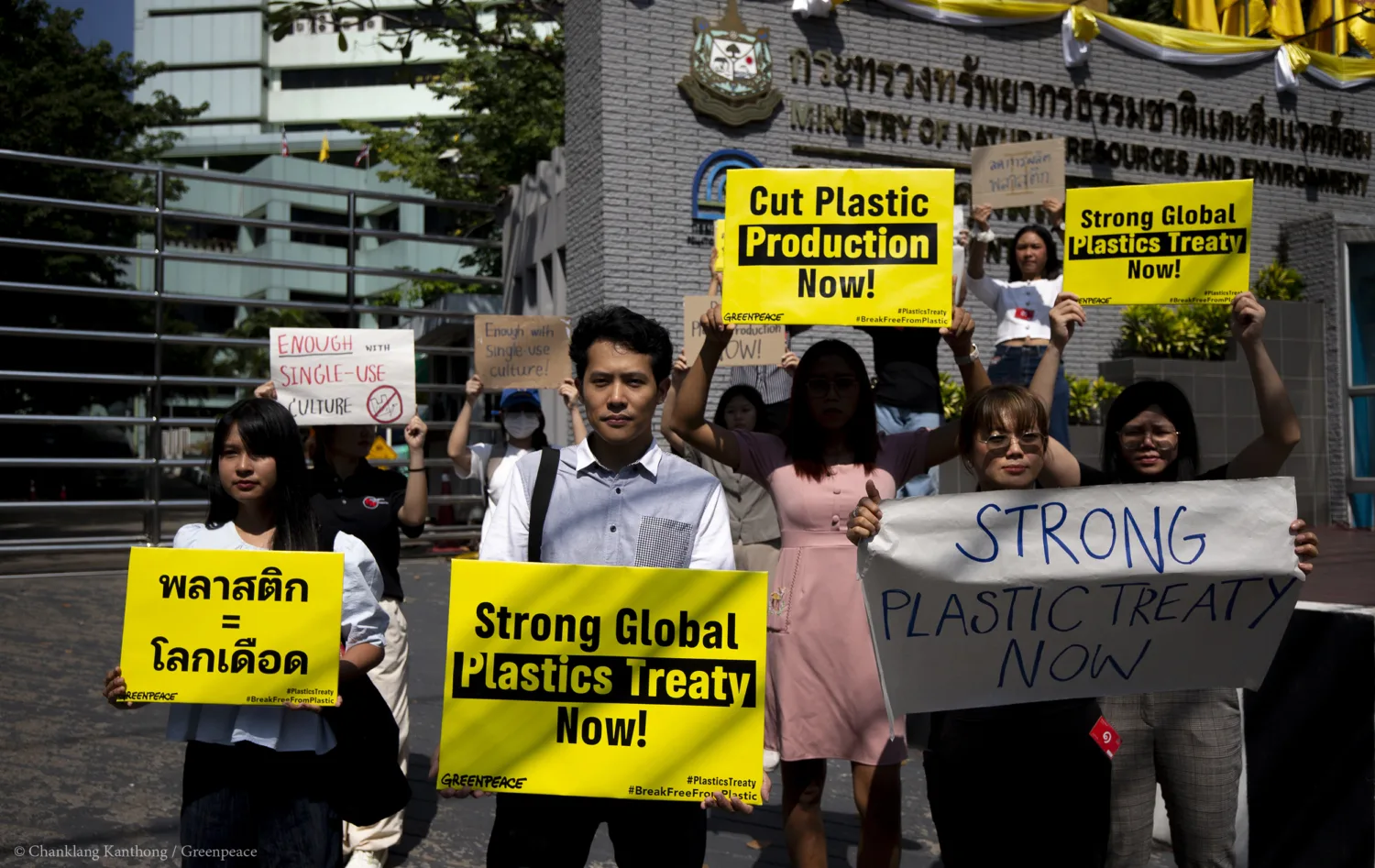
Voices from civil society who signed up
“The Thai Muslim Youth Development Association joins the voices of youth groups who want Thailand to take action to address plastic pollution through the establishment of a global plastics treaty. Reducing plastic production is an important starting point for protecting and conserving the environment as a whole.” – Anas Chitlang, President of the Association Thai Muslim Youth Development Association
“Medical research has demonstrated that microplastics contaminating aquatic animals and marine ecosystems have significant health impacts on humans who consume seafood. For coastal communities and local fishermen, marine plastic waste is a toxic waste that washes up on communities, beaches, islands, and becomes trapped in fishing gear. We have voluntarily campaigned to reduce plastic waste, but we have allowed the production, use, and disposal of plastic to remain cheap, unregulated, and pose a threat to us all. Marine litter is a transboundary threat, drifting into the oceans. International cooperation is essential to end this threat. The world needs a legally binding plastics treaty that addresses the reduction of plastic production and the cessation of unnecessary plastic use, emphasizing the responsibility of both producers and consumers throughout the plastics cycle.” – Mr. Pakpoom Witthanthirawat, Executive Chairman Andaman Foundation (Save Andaman Network)
“Reducing plastic production, reducing plastic use, and ending dirty plastic recycling processes are the three key solutions to addressing the plastic problem that impacts humans and the environment.” – Somnuk Jongmeewasin, Director of Research EEC Watch
“To reduce the amount of plastic, we must start with government policies and management plans.” – Suphaphon Malailoi, Manager Environmental Law Foundation (EnLAW)
“Over the years, people have become more aware of this issue. We've made efforts to manage our own and household waste, reduce plastic use, and encourage each other through social media. I believe people are always ready to adapt. We're asking those involved in production to reduce some things, increase others, and facilitate us from the start through this petition. This is the way we, the youth, seek to live together, hoping to address this indirect threat to the biodiversity we care about.” – Mr. Nopparat Anantaprayoon, Co-Coordinator Global Youth Network for Biodiversity Thailand (GYBN Thailand)
"Saleng are at the bottom of the food chain, collecting and selling waste to make a living. I've seen our fellow saleng workers pick up plastic scraps and can't resell them because scrap dealers or plastic mills refuse to buy them, as they're mixed with plastic, or because there's no real market for them. This results in plastic becoming orphaned and ultimately discarded. I'd like to urge packaging manufacturers to ensure that plastics once produced are truly recyclable. 100% isn't just a cool logo. It's a waste of resources, and a waste for all saleng workers." – Mr. Chaiyut Pholsen, President of the Association The Association of Saleng and Secondhand Shops
“Chiang Mai is another area affected by environmental problems. In addition to PM2.5 dust, there are also problems with waste management at both the city and community levels, particularly plastic waste. Local and government agencies lack policies to reduce and manage this waste. This plastic waste contaminates community areas, some are buried in landfills, and some are burned, releasing air pollution. Meanwhile, upstream producers continue to widely produce and use plastic packaging without any measures to address the problem. If this continues, upstream areas like Chiang Mai will become the source of plastic waste and pollution flowing through the center of Thailand into the Gulf of Thailand and the ocean, impacting people and the environment. This is a crisis that needs urgent resolution. We urge all sectors—the public, business, and government—to implement measures, laws, and practices to control and manage the plastic waste problem with participation and seriousness, to create a better society and environment.” – Chanakan Nanthawan Somdul Chiangmai Group






